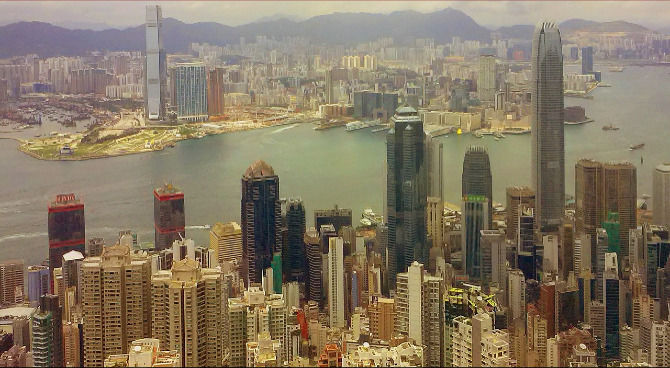Expat costs in Asia hit new highs
Six of the top 10 most expensive cities for expats are in Asia Pacific region. What other cities are on the list - and what's driving the high cost of international assignments?

 26 June 2018
26 June 2018Reasons for the high cost of expat life
The rise in the value of the yuan was the main reason for Hong Kong's elevation into top spot in the table. The rest of the top 10, in order, comprised Tokyo, Zurich, Singapore, Seoul, Luanda, Shanghai, N’Djamena, Beijing and Bern. The world’s least expensive cities for expatriates were Tashkent, in 209th place, Tunis and Bishkek.“With technology advances and the importance of a globally connected workforce, deploying talent remains a key component of a multinational’s business strategy,” said Ilya Bonic, president of Mercer’s career business.“While a mobile workforce allows organisations to achieve greater efficiency, utilise top talent, and be cost effective with international projects, volatile markets and slowing economic growth in many parts of the world require them to carefully assess expatriate remuneration packages.“Aligning workforce and mobility strategies by ensuring the right employees are in the right place is more critical than ever for multinationals as they focus on new global business models. And, properly compensating employees on international assignments is as important as it can be costly.”Related articles:
- A Great Move: Home is where the heart is
- Which cities are most expensive for business travel?
- International assignments: the complete articles
On a regional basis, Mercer reported:
Europe, the Middle East, and Africa
Overall, Western European cities have all risen in the rankings, a result of strong local currencies against the US dollar and the cost of goods and services. In particular, cities in Germany experienced some of this year’s biggest surges in the ranking, with Frankfurt (68), Berlin (71) and Munich (57) each climbing more than 40 places.In the UK, London jumped ten spots to 19th place. Birmingham (128) went up 19 places from last year, Belfast (152) jumped 18 spots, and Aberdeen (134) climbed 12 places.“UK cities’ rise in this year’s ranking is mainly due to a strengthening of the pound against the US dollar,” said Kate Fitzpatrick, Mercer’s global mobility practice leader for the UK and Ireland. “A drop in rental accommodation prices held back London’s increase while rental increases in Birmingham and Belfast contributed to the ranking increase of these cities.”Tel Aviv (16) continued to be the most expensive city in the Middle East, followed by Dubai (26), Abu Dhabi (40), and Riyadh (45). “On the whole, most Middle Eastern cities have dropped in the ranking, due to decreases in rental accommodation costs throughout the region,” said Yvonne Traber, global mobility product solutions Leader at Mercer.Asia Pacific
Six of the top 10 are occupied by Asian cities this year. “Stronger Chinese monetary regulation, a flourishing economy and a push to have the Chinese Yuan as an international currency pushed Chinese cities up in the ranking,” said Ms Traber.“However, significant surges in other locations worldwide caused Japanese cities, Osaka and Nagoya in particular, to fall in this year’s ranking.”Mumbai (55) is India’s most expensive city, followed by New Delhi (103) and Chennai (144). Kolkata (182) and Bengaluru (170) are the least expensive Indian cities ranked. Elsewhere in Asia, Bangkok (52) jumped 15 places from last year.Australian cities have fallen in the ranking this year. Brisbane (84) and Perth (61) dropped 13 and 11 places, respectively, while Sydney (29), Australia’s most expensive ranked city, experienced a relatively moderate drop of five places.“Cities in other countries moved up in the ranking, causing Australian cities to drop,” said Ms. Traber. “In general, cities that fall in the middle of the ranking are at greater risk of experiencing significant changes in their positions due to the movement of other cities.”The Americas
Cities in the United States have dropped in the ranking due to a steady pick-up of the European economy, which triggered a decline of the dollar. New York dropped four places to occupy 13th spot, the highest-ranked city in the region, while San Francisco (28) and Los Angeles (35) dropped seven and 12 places, respectively.In South America, São Paolo (58) ranked as the costliest city despite a 32-place drop from last year. Santiago (69) followed as the second most expensive location.Relocate’s new Global Mobility Toolkit provides free information, practical advice and support for HR, global mobility managers and global teams operating overseas. Access hundreds of global services and suppliers in our Online Directory
Access hundreds of global services and suppliers in our Online Directory
©2025 Re:locate magazine, published by Profile Locations, Spray Hill, Hastings Road, Lamberhurst, Kent TN3 8JB. All rights reserved. This publication (or any part thereof) may not be reproduced in any form without the prior written permission of Profile Locations. Profile Locations accepts no liability for the accuracy of the contents or any opinions expressed herein.







































